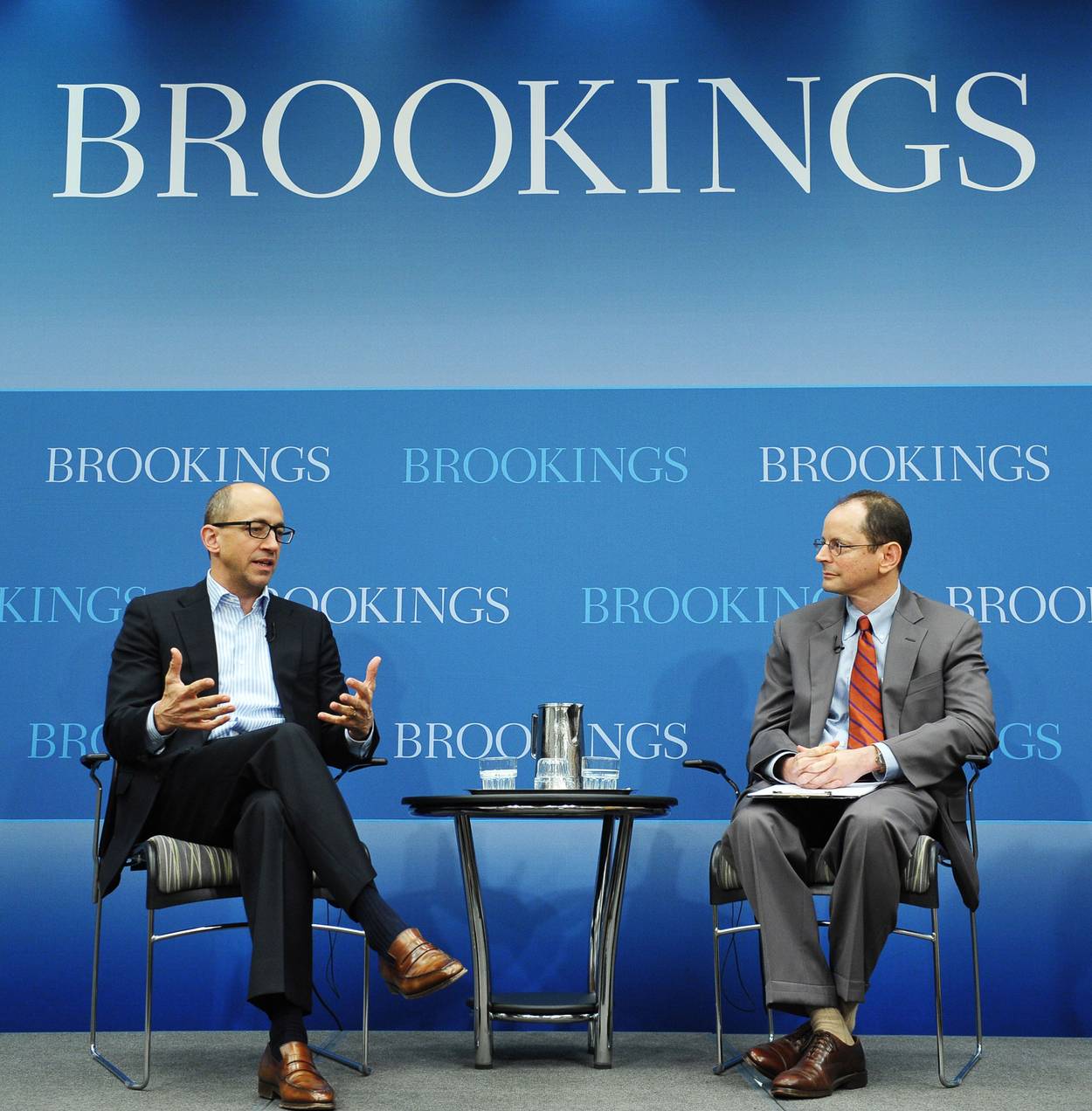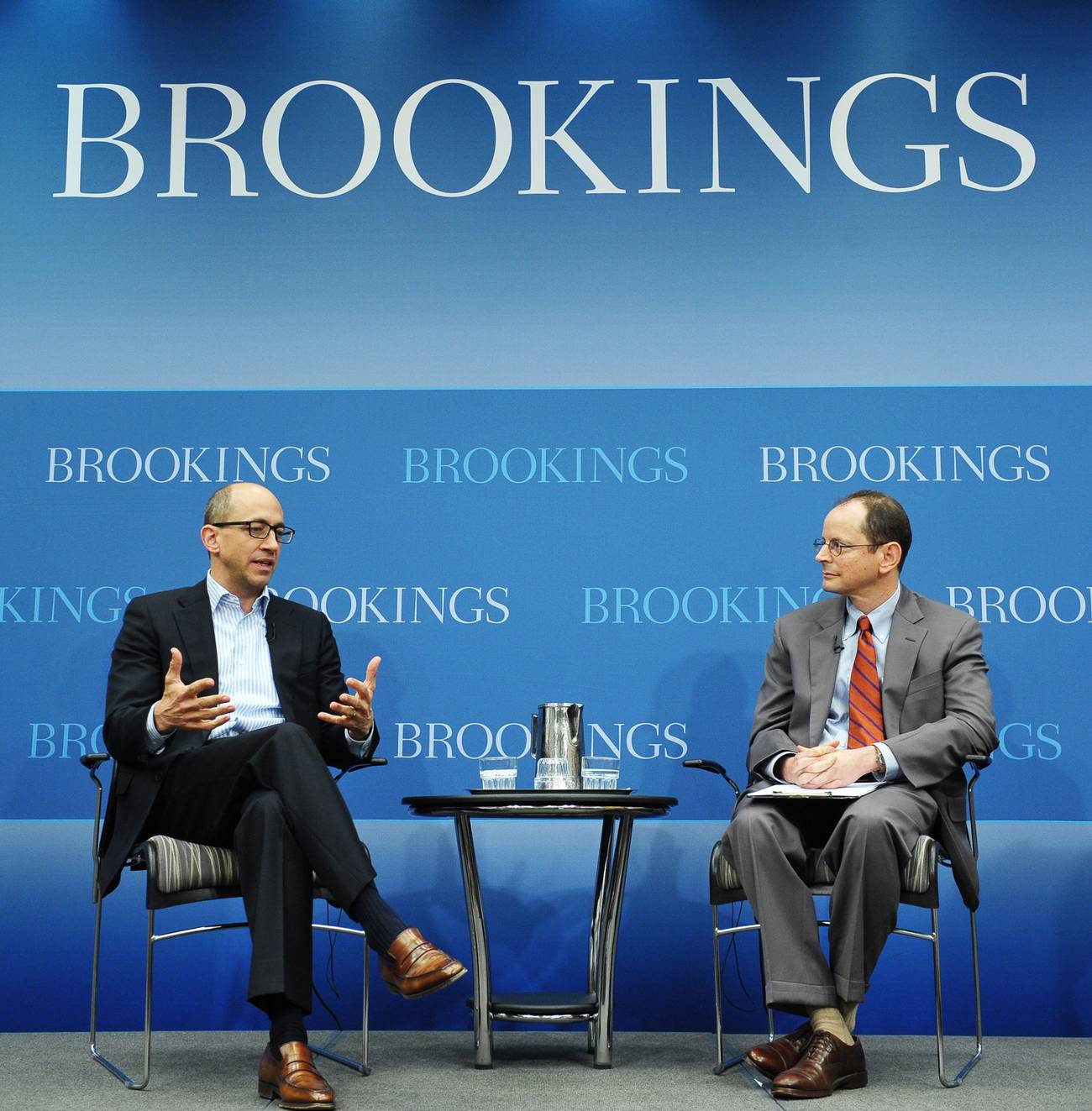Jonathan Rauch’s Truth Crisis
A spokesman for the ‘reality-based community’ acquits his own class and condemns its critics




America is in a truth crisis. Its citizens have divided into tribes that believe radically different realities. Institutions devoted to finding the truth and creating knowledge have been corrupted by censors and bullies. The digital platforms that host our national discourse are designed to keep us outraged.
This is the assessment of Jonathan Rauch in his provocative book The Constitution of Knowledge: A Defense of Truth. Our political culture suffers from a lack of epistemic humility, or the appreciation that we understand what is true by allowing truths to be tested. It also suffers from a kind of epistemic helplessness, in that too many people have given up altogether on trying to ascertain objective truth.
There are many villains in this story. There are the ideologues that believe words are a form of violence and encourage the shaming and chilling of speech that dissents from new theories of race and gender. There are social media companies that have created an attention-based economy that rewards shock and indignation. And of course there is Donald Trump and his enablers who engage in what Rauch calls “troll epistemology,” which produces a firehose of falsehood. All of these forces threaten the “constitution of knowledge,” the “epistemic operating system” for liberal societies, or the “social rules for turning disagreement into knowledge.”
Unlike the U.S. Constitution, the constitution of knowledge is not written down. It is rather a culture that has evolved over time to determine how we know something is true, such as whether the claim is falsifiable and whether it can withstand reasonable scrutiny. In practice this creates a code of conduct for knowledge elites. Mainstream newspapers are supposed to promptly correct their errors. Scholarly journals require articles to be peer reviewed. Lawyers should be disbarred for lying in court. All of this comprises the “filtering and pumping stations” that form the basis of our shared reality.
The people who adhere to the constitution of knowledge are what Rauch calls the “reality-based community.” Rauch has borrowed this term from the pre-Twitter progressive blogs of the 2000s that popularized it as tribal branding. Back then it was a jibe at the George W. Bush administration, which allegedly didn’t care for facts and expertise. Rauch uses it to distinguish between the credentialed knowledge class, of which he approves, and the trolls, cranks, and propagandists who seek to discredit objective truth itself. While not all members of the reality-based community agree on all facts, they do agree on “the method of establishing facts.” The enemies of this community do not.
The problem with Rauch’s theory, as the past five years have amply shown, is that it is blind to the epistemic failures of the knowledge class itself. To be sure, Rauch devotes a persuasive chapter to cancel culture and skewers institutions that have succumbed to the pressures of online mobs. But he nonetheless presents the elite press, the intelligence community, and the public health bureaucracy (to name three examples) as noble victims of the Morlocks who aim to discredit them. His problem is that he never gets around to the myriad ways these institutions have abandoned the epistemology that he ascribes to them, and in doing so have discredited themselves.
Rauch writes for example that in the Trump era “mainstream media, whatever its ideological priors, was in the bias-disconfirming business. It remained grounded in conventional journalistic norms.” It was? To pick one of many examples, consider Michael Avenatti, the former lawyer who is now in jail for shaking down Nike Inc. Before the law caught up with him, Avenatti was feted nightly on cable news. During the Brett Kavanaugh nomination fight, he promoted a lurid falsehood that the Supreme Court justice had participated in gang rape parties—a falsehood that was casually treated by much of the press as true, or almost true, or true enough, in a way calculated to erase formerly normative standards of objective truth. Rauch presents Anthony Fauci, director of the National Institute of Allergy and Infectious Diseases and the chief medical adviser to the president of the United States, as someone who fought against White House efforts to shade the truth about COVID with no mention of his repeated, knowing lies, whether noble or ignoble, about the efficacy of masks or the origins of the virus.
Rauch presents the elite press, the intelligence community, and the public health bureaucracy as noble victims of the Morlocks who aim to discredit them.
The most blatant example of Rauch’s failure to grapple with elite epistemic failure is his treatment of the Federal Bureau of Investigation. In fact, former FBI Director James Comey is one of the people who blurbs his book. Rauch’s brief mention of the 2019 Justice Department inspector general report on the FBI’s surveillance warrants for former Trump campaign volunteer Carter Page says it “found procedural errors but no political bias in the FBI’s investigation of Russian efforts to influence the Trump campaign.”
This is a complete misreading of the report from Inspector General Michael Horowitz. For more than a year, the Justice Department, the FBI, and former FBI officials like Comey insisted that the charge that Page’s surveillance warrant was based almost entirely on a flimsy dossier of opposition research paid for by the Democratic Party was disinformation. Leading members of Rauch’s “reality-based community” like Rep. Adam Schiff, D-Calif., the chairman of the House Intelligence Committee, argued that the FBI would have been negligent if it hadn’t applied for the surveillance warrant.
Horowitz demolished these claims by showing in painstaking detail that the FBI would not have sought the warrant at all if it had not been for the dossier. What’s more, after FBI officers learned that the document’s primary source said the finished product was filled with exaggerations and misstatements, the bureau kept that information from the surveillance court in two subsequent renewals for the warrant. Indeed, Horowitz found in a sampling of other surveillance warrants that the basic procedures established to guarantee the accuracy of evidence were routinely ignored.
Those are not minor procedural errors. They represent a very large and hugely consequential betrayal of the constitution of knowledge that Rauch seeks to defend. In a sense, Rauch could argue that the very fact that Horowitz discovered this scandal is evidence that the reality-based community’s filtering and pumping stations worked. Comey’s FBI gamed the surveillance court, and the inspector general caught them. Only, why have the person responsible for these deceptions blurb your book?
The truth revealed by the Horowitz report is that the system failed. As Rauch writes, what distinguishes reality-based institutions from their adversaries is that its members “may disagree on a lot of things, but they regard lying and making stuff up as a firing offense.” Comey and the other senior FBI officials implicated in the Carter Page scandal have never paid a social or professional price for their chicanery. Comey’s deputy, Andrew McCabe (who was reprimanded in another report from Horowitz for lying about leaking information on the bureau’s investigation into the Clinton Foundation) remains a contributor at CNN. Comey has taught a course at Columbia law school. The only FBI official who will face any penalty, a lawyer who doctored evidence for the Page warrant, was given a sentence of probation and no jail time in January.
Some of this is explained by the particularly cozy relationship between Comey’s FBI and the elite media. In the first two years of the Trump administration, anonymously sourced reports about the bureau’s and the special counsel’s investigation into the Russian collusion story left most of Washington with the impression that Trump and his team would very shortly be exposed as Russian assets. The opposition research dossier commissioned by Hillary Clinton’s campaign was treated as a road map to the scandal by outlets like MSNBC and CNN, whose reporters knew full well who their sources were and where the information they presented as fact was coming from. And when the dossier was exposed as a fraud, many of the same institutions that hyped it moved on instantly to the Ukraine impeachment hearing. Nearly two decades ago, The New York Times devoted a separate investigative team to explore how the paper of record botched the story of Iraq and weapons of mass destruction. The Times did no such thing when it came to Russiagate; instead, it went home with a Pulitzer Prize for years of misleading reporting.
Another explanation is that the intense focus on disinformation in the Trump years blinded the press and Congress to their traditional roles as checks on the power of the FBI and intelligence community. Rauch quotes historian Thomas Rid approvingly in this regard: “At-scale disinformation campaigns are attacks against a liberal epistemic order, or a political system that places its trust in essential custodians of factual authority. These institutions—law enforcement and the criminal justice system, public administration, empirical science, investigative journalism, democratically controlled intelligence agencies—prize facts over feelings. Evidence over emotion, observations over opinion.”
A distinction must be made between serious and reasonable critiques of these institutions and the kind of epistemic trolling that only seeks to discredit them. Yet for the biggest stories of the Trump era, the reality-based community mainly amplified the judgments of these institutions and sought to silence and marginalize their critics. When the critics were proven right, Rauch’s reality-based peers consigned their long and embarrassing record of mistaken judgments and public promulgation of falsehoods to a memory hole.
That the epistemic failure of Rauch’s reality-based cohort is unlikely to be a momentary glitch in an otherwise well-functioning system is illustrated in the current vogue for the term “disinformation.” Two examples will suffice. For most of 2020 and the first four months of 2021, YouTube, Twitter, and Facebook banned or labeled discussions of the lab-leak hypothesis about the origins of COVID-19 as misinformation. It wasn’t until the Biden administration announced that it had asked the intelligence community to further study this possibility that the ban was lifted. In the run-up to the 2020 election, these companies actively prevented users from sharing a New York Post story based on Hunter Biden’s laptop that showed he had attempted to profit with foreign entities on his father’s position. “Disinformation experts” like Rid backed this successful form of censorship by solemnly announcing that the Biden laptop story was “Russian disinformation.” But Hunter Biden himself after the election acknowledged that the laptop was real, and other news outlets reported that the Justice Department had opened an investigation into Hunter’s possible influence peddling in Ukraine and China. Even Twitter CEO Jack Dorsey later said in a congressional hearing that his company’s approach to the story was a mistake.
These flaws in Rauch’s book are a pity. Much of it is superb. His chapters on the philosophical origins of the constitution of knowledge and the dangers of cancel culture are welcome additions to the discourse. But a defense of objective truth must account for the mounting failures of its institutional gatekeepers. That task is difficult when epistemic sociopaths on both sides seek to discredit actual expertise and objective fact-seeking, whether in the name of conspiracy theories and fear-mongering or claims to some higher-order purchase on truth. As Daniel Patrick Moynihan once put it, “Everyone is entitled to his own opinion, but not his own facts.” It’s a simple rule, one whose humility Rauch and his fellow self-proclaimed members of the reality-based community might do well to embrace before the constitution of knowledge goes up in smoke.
Eli Lake is a syndicated columnist for Bloomberg and a fellow at the Clement Center for National Security at the University of Texas, Austin.